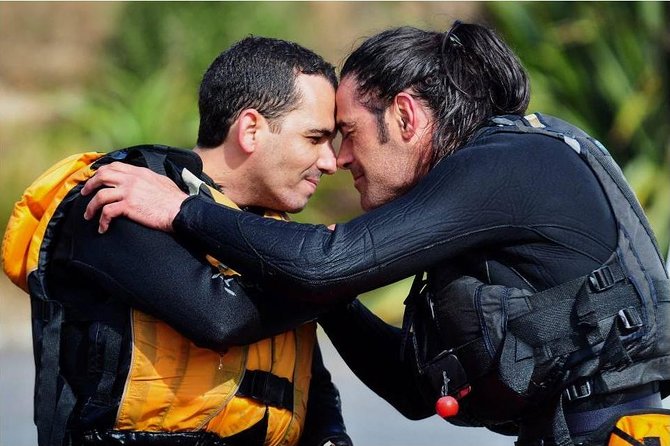18th September 2020 By Shannon Williams | shannon@tourismticker.com | @tourismticker
Operators looking to include Māori language and culture into their tourism offerings should start by talking to their mana whenua, says Kaitiaki Adventures.
Speaking on the Tourism Industry Aotearoa What is the value proposition of Te Reo Māori for the tourism industry? webinar, Kaitiaki Adventures marketing manager Haydn Marriner said it was important that any Māori inclusion in a tourism business was authentic.
“Our biggest recommendation to our family in the tourism industry is if you do wish to get started, try talking to the people around you, and as long as you are using it in an authentic way, you’ll be safe,” he said.

Kaitiaki Adventures’ Māori staff guides
“For those of you who are working in tourism anywhere in New Zealand, there will be a mana whenua where you are.
“Māori have stories that echo across, they have claims, they have a history with the whenua, so if you’re looking for your first point of call as an entry point in te reo Māori as it might relate to your business, try talking to your local mana whenua.”
Before Kaitiaki Adventures went into operation, the business first spoke to Ngāti Pikiao, because they were the mana whenua of the Kaituna awa.
“And what was really surprising to us, because this was 21 years ago, was that white water rafting had existed on the Kaituna River since the 70s, but we were the first people to have a conversation with iwi about what it was like to live on their river,” said Marriner.
“In fact, we were the first ones to ask for permission to raft on their river.
“Tourism has changed exponentially, but we at Kaitiaki Adventures have stayed the same – our kaupapa has always been about inclusivity, and providing a gateway for people to have a really awesome experience in New Zealand that was uniquely Aotearoa.”
The operator incorporates te reo Māori into its everyday, from how staff answer the phone, to signage down the river.
“When our international guests come and see us, they see that te reo Māori is a part of our everyday interactions,” said Marriner.
“We want to make sure we are immersing our guests and our staff into te reo Māori in a safe and correct manner.”
Matu Ihaka, pouhwhakahaere matua, director, at Te Taura Whiri i te Reo Māori, the Māori Language Commission, said the value proposition for tourism was that the Māori language was one of the unique factors of New Zealand, one of the things people came here to experience.
“The language can be reflected by New Zealand tourism to better connect with people, not just outside of New Zealand but within in New Zealand,” said Ihaka.
“As we expand New Zealand language it allows Māori language speakers and learners to use more of that language within the wider New Zealand context.”
Ihaka said the Māori Language Commission was tasked by the Government to ensure Māori would be spoken “every day, every way, by everyone”, and help achieve a million Māori speakers by 2040.
8 Mar 2024 Kāpiti opens Māori Economic Development Fund
30 Aug 2023 Tourism 7% of Māori businesses – Stats NZ